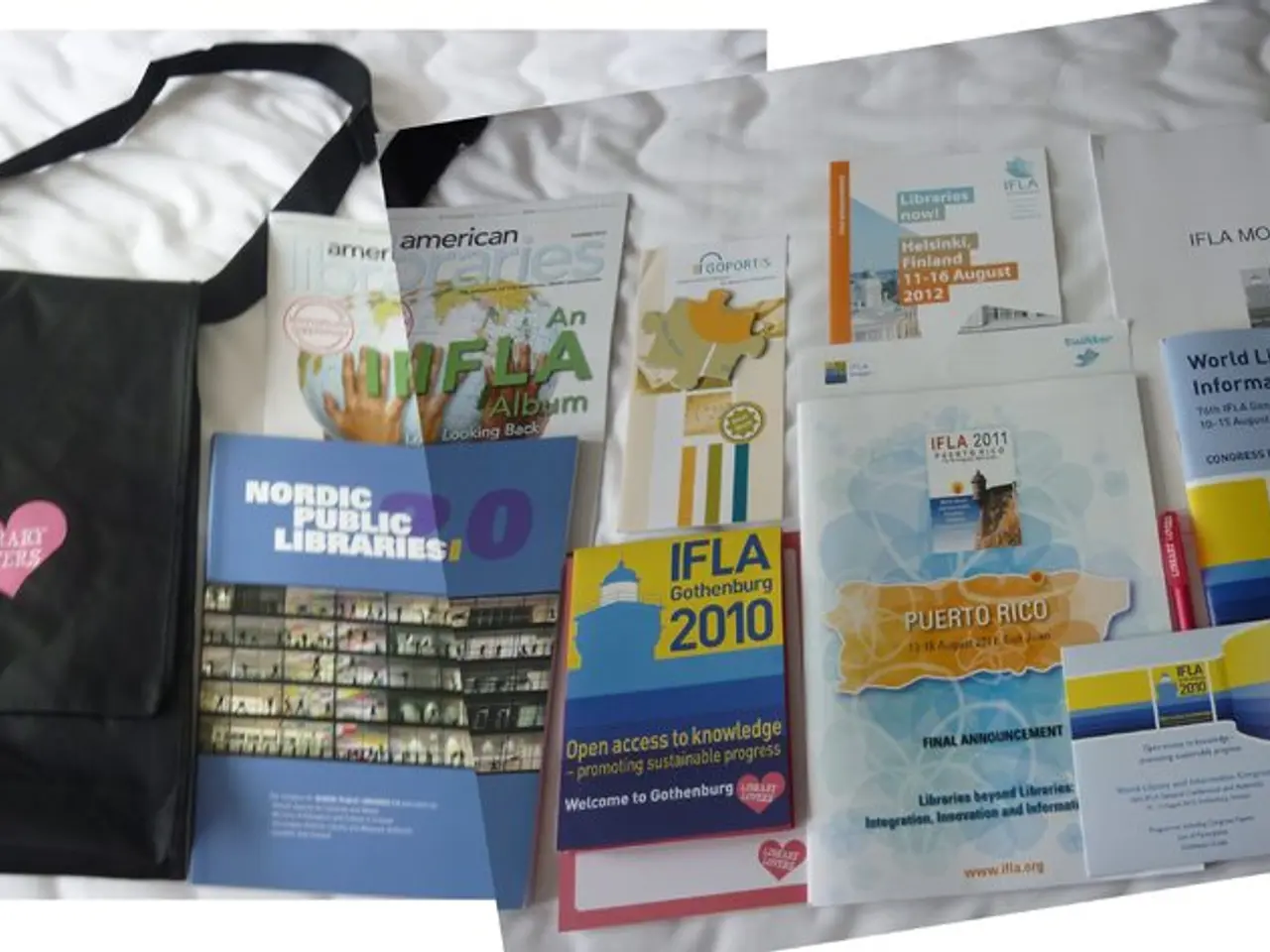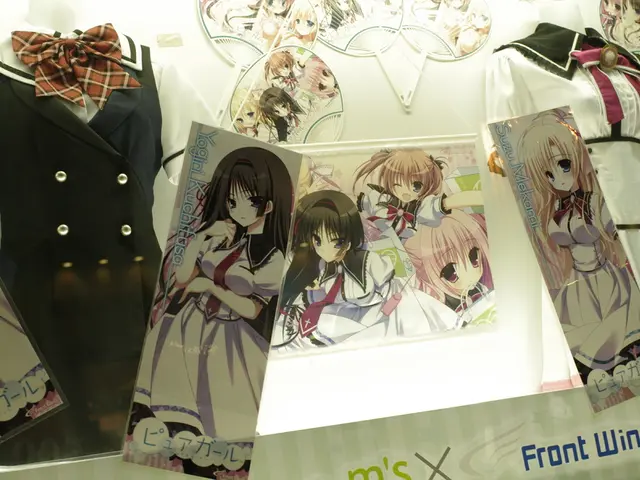Text Generated: Publications Created by Artificial Intelligence
In the world of literature, concerns about the rise of artificial intelligence (AI) in book publishing are growing. Librarians are at the forefront of this issue, grappling with potential copyright issues and the quality of AI-generated content.
Librarian Sarah Manning suggests a careful approach when selecting books, recommending that readers look into the author's background, checking for a digital footprint, and being wary of authors with no online presence, especially those credited with numerous titles each year. This advice comes in light of the discovery that the authors of books published by Lukeman Literary Management, a well-known literary agency, have little to no social media presence and only bare-bones websites with minimal author bios.
The authors of these books are indeed real, individual writers, but the concern lies in the high volume of titles they produce and the lack of substantive online presence. Lukeman Literary Management also admits that a small portion of their titles have used a hybrid human/AI approach, with human writers assisted by AI to achieve higher quality.
Another issue arises with audiobooks. Librarian Robin Bradford accidentally bought an AI-narrated audiobook on OverDrive, with narrators listed as "Scarlett (synthesized voice)". Bradford found more than 100 audiobook titles with the same narrator, all of them thrillers from Lukeman Literary Management.
Hoopla Digital, a digital media service provider, relies on accurate metadata from its vendor partners to flag low-quality, AI-generated content. However, industry standards necessary for this flagging don't exist yet. In response, Hoopla Digital President Jeff Jankowski states that they are collaborating with digital aggregation partners to ensure they provide metadata noting AI-generated ebooks.
Research and advocacy organization Library Futures is calling on Hoopla to filter out low-quality, AI-generated ebooks from its collections. Jennie Rose Halperin of Library Futures suggests that every company offering AI-generated material should have transparency standards put in place.
Librarian Sondra Eklund encountered a children's book titled Rabbits: Children's Animal Fact Book from publisher Bold Kids, which she found contained strangely worded sentences, made-up facts, and repetitive pages. Bold Kids offers nearly 500 books on Goodreads and Amazon, but has no website or authors associated with its books.
Librarians can opt out of AI content from Hoopla's collection by making lists of blocked books or working with Hoopla, but removing all possible AI material would be incredibly time-consuming. Librarian Nick Tanzi suggests that a lack of disclosure from publishers and vendors contributes to AI-generated books slipping into library collections against policy.
At the 2025 Annual Conference of the American Library Association (ALA), a resolution was passed to create an artificial intelligence cross-divisional working group for developing a unified, critically informed ALA position on AI and libraries. The group aims to address these concerns and provide guidelines for librarians navigating the world of AI-generated content.
As libraries continue to evolve with technology, librarians are working hard to ensure that the content they provide is of the highest quality and free of potential copyright issues. The issue of AI-generated content is a complex one, but with collaboration and transparency, it can be addressed effectively.
Read also:
- Transforming Digital Inventories in the Food Industry: A Comprehensive Guide for Food Businesses
- 1. Key Points for August 14: Gathering in Alaska, Immigration Enforcement (ICE), Financial service Zelle, Infowars, and Air Canada Airline Incidents
- Automobile manufacturer IM Motors reveals an extended-range powertrain akin to installing an internal combustion engine in a Tesla Model Y.
- Electric Semi-Truck from Tesla Joins Forces with Uber Freight in Promoting Electric Truck Usage







